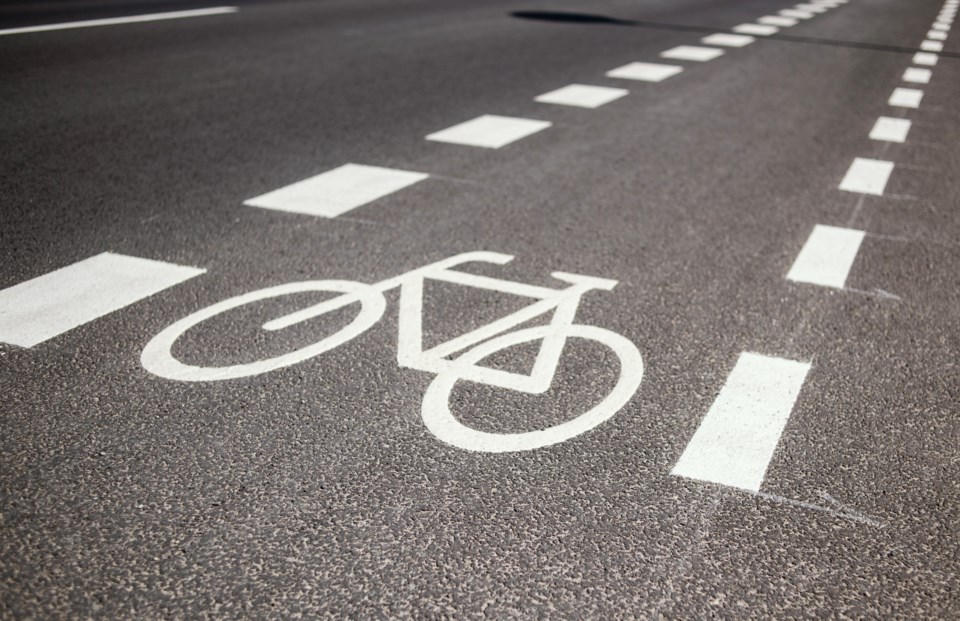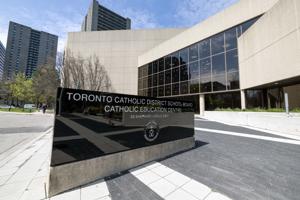Politics
Ford Government Appeals Court Ruling on Toronto Bike Lanes

Ontario’s government, led by Premier Doug Ford, has initiated an appeal against a court ruling that deemed the removal of bike lanes on three major Toronto streets unconstitutional. The Ontario Superior Court of Justice determined in July 2023 that the government’s plans to eliminate bike lanes on Bloor Street, Yonge Street, and University Avenue would likely lead to injuries and fatalities, asserting that the decision failed to consider the significant safety implications.
In its submission to the Court of Appeal, the provincial government contended that the lower court “exceeded its jurisdiction” and made “multiple errors of law.” The government’s argument emphasized that the court mistakenly recognized a constitutional right to the permanent maintenance of existing bike lanes. They expressed concern that the ruling implied that bike lanes on public roads are protected by the Charter of Rights and Freedoms.
Justice Paul Schabas, who presided over the initial ruling, clarified that there was no demand for a constitutional right to bike lanes. He noted that the applicants were not seeking a court order for the establishment of more bike lanes and did not challenge the regulation that mandates provincial approval for new bike lanes, especially those that would involve the removal of motor vehicle lanes.
The Ford government challenged the court’s characterization of its plan to eliminate bike lanes as “arbitrary.” In his decision, Schabas referenced expert evidence, including findings from the government’s own studies, which indicated that the removal of bike lanes would have a minimal effect on vehicle travel times. The government argued that even with a potential increase in vehicle traffic, more lanes would facilitate greater accommodation for motorists.
In its revised approach, the government shifted from outright removal to “reconfiguring” the bike lanes, intending to restore a lane for motor vehicles. Their submission stated that the Minister has no obligation or authority to completely remove bike lanes unless permitted by a new regulation, which has not yet been enacted.
Despite acknowledging the government’s revised plan, Schabas noted it did not represent a meaningful change. “This is a distinction without a difference,” he stated, maintaining that the government would still hold the authority to remove the bike lanes.
Cycling advocates who oppose the bike lane removals have pledged to contest the government’s appeal. Michael Longfield, executive director of Cycle Toronto, emphasized the importance of the Charter in safeguarding the rights of all Canadians, urging Premier Ford to adhere to the rule of law and respect the judiciary’s findings.
Even if cycling advocates succeed in defending against the appeal, the Ford government has indicated it may invoke the notwithstanding clause to implement the proposed changes to the bike lanes. This clause allows the government to override certain judicial decisions, setting the stage for further potential conflict over cycling infrastructure in the city.
-

 Politics4 weeks ago
Politics4 weeks agoSecwepemc First Nation Seeks Aboriginal Title Over Kamloops Area
-

 World5 months ago
World5 months agoScientists Unearth Ancient Antarctic Ice to Unlock Climate Secrets
-

 Entertainment5 months ago
Entertainment5 months agoTrump and McCormick to Announce $70 Billion Energy Investments
-

 Science5 months ago
Science5 months agoFour Astronauts Return to Earth After International Space Station Mission
-

 Lifestyle5 months ago
Lifestyle5 months agoTransLink Launches Food Truck Program to Boost Revenue in Vancouver
-

 Technology3 months ago
Technology3 months agoApple Notes Enhances Functionality with Markdown Support in macOS 26
-

 Lifestyle3 months ago
Lifestyle3 months agoManitoba’s Burger Champion Shines Again Amid Dining Innovations
-

 Top Stories2 months ago
Top Stories2 months agoUrgent Update: Fatal Crash on Highway 99 Claims Life of Pitt Meadows Man
-

 Politics4 months ago
Politics4 months agoUkrainian Tennis Star Elina Svitolina Faces Death Threats Online
-

 Sports5 months ago
Sports5 months agoSearch Underway for Missing Hunter Amid Hokkaido Bear Emergency
-

 Politics5 months ago
Politics5 months agoCarney Engages First Nations Leaders at Development Law Summit
-

 Technology5 months ago
Technology5 months agoFrosthaven Launches Early Access on July 31, 2025





















